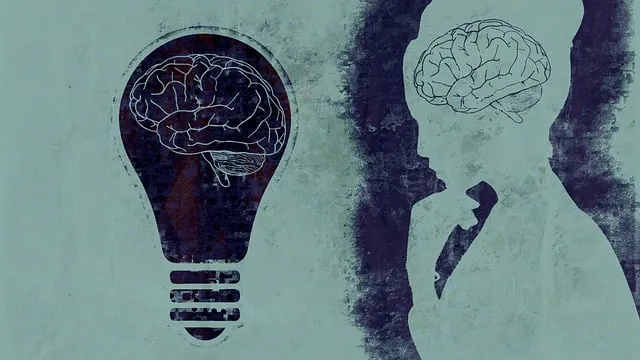Arvada Kaiser Permanente behavioral health services leads in Crisis Intervention Team (CIT) training, empowering healthcare providers with de-escalation skills and cultural sensitivity. Their approach combines positive thinking, mindfulness meditation, and comprehensive risk management planning for effective crisis resolution. CITs not only prevent self-harm and suicide but also contribute to long-term mental health management and community well-being. Through tailored training, role-playing, and strategic planning, Arvada Kaiser Permanente enhances patient outcomes and organizational resilience while reducing burnout and stigma.
In today’s complex healthcare landscape, effective crisis intervention teams (CITs) play a pivotal role in managing mental health crises. This article explores the transformative power of CIT training programs, focusing on best practices and real-world success stories. We delve into the essential components that make programs like Arvada Kaiser Permanente Behavioral Health Services’ approach a model for others to follow. By understanding these strategies, healthcare providers can enhance patient outcomes and build resilient communities.
- Understanding Crisis Intervention Teams: Their Role and Impact
- Arvada Kaiser Permanente Behavioral Health Services: A Model Program
- Essential Components of Effective Crisis Intervention Training
- Implementation and Challenges: Strategies for Success
Understanding Crisis Intervention Teams: Their Role and Impact

Crisis Intervention Teams (CITs) are specialized groups designed to respond to individuals experiencing severe emotional or psychological crises. These teams play a pivotal role in community mental health, often acting as a vital safety net for those at risk of self-harm or suicide. At Arvada Kaiser Permanente behavioral health services, for instance, CIT training programs have been instrumental in equipping healthcare providers with the skills to de-escalate high-risk situations effectively.
By integrating positive thinking and mindfulness meditation techniques into their protocols, these teams foster an environment of calm and understanding. This is particularly crucial when interacting with individuals from diverse backgrounds, as Healthcare Provider Cultural Competency Training ensures empathetic and culturally sensitive care. The impact of CITs extends beyond immediate crisis resolution; they contribute to long-term mental health management and community well-being by providing timely interventions that can prevent more severe psychological consequences.
Arvada Kaiser Permanente Behavioral Health Services: A Model Program

Arvada Kaiser Permanente Behavioral Health Services stands out as a model program for crisis intervention team training. By integrating comprehensive Arvada Kaiser Permanente behavioral health services, this initiative prioritizes early identification and intervention for individuals in distress. The program emphasizes effective communication strategies to foster empathetic connections between healthcare providers and patients struggling with mental illness. Through regular workshops, simulations, and ongoing support, the team equips members with the skills needed to navigate complex situations sensitively and efficiently.
Beyond addressing individual needs, the model incorporates mental illness stigma reduction efforts, creating a supportive environment where all individuals feel comfortable seeking help. Additionally, it incorporates burnout prevention strategies for healthcare providers, recognizing the critical role of self-care in maintaining the team’s resilience and effectiveness over time. This holistic approach not only enhances patient outcomes but also promotes the well-being of those dedicated to providing crucial behavioral health services.
Essential Components of Effective Crisis Intervention Training

Effective crisis intervention training programs are multifaceted and tailored to prepare mental health professionals for a wide range of challenging situations. The core components include comprehensive risk management planning, empowering professionals with evidence-based communication strategies, and fostering resilience through confidence-boosting techniques. These elements are crucial for navigating complex scenarios involving individuals in distress, ensuring the safety of both clients and care providers.
Arvada Kaiser Permanente behavioral health services emphasize the importance of practical training that goes beyond theoretical knowledge. By integrating risk management planning into their curriculum, these programs equip professionals with the skills to assess and mitigate potential risks effectively. Furthermore, communication strategies are honed through role-playing and scenario simulations, enhancing the ability to de-escalate tense situations. Ultimately, confidence-boosting exercises play a vital role in nurturing resilience, enabling mental health professionals to respond calmly and competently under pressure.
Implementation and Challenges: Strategies for Success

Implementing crisis intervention team (CIT) training programs within organizations like Arvada Kaiser Permanente behavioral health services can be transformative, empowering staff to effectively manage mental health crises. However, the process is not without challenges. Organizations must strategically plan for successful integration. This includes tailoring CIT training to meet specific needs, ensuring adequate resources and support, and fostering an environment where open communication and de-stigmatization of mental health issues are prioritized.
Adhering to Mind Over Matter Principles can enhance these efforts. These principles encourage a proactive approach to mental wellness, emphasizing early intervention and supportive environments. By combining comprehensive training with these foundational concepts, CIT programs become more effective in empowering professionals to navigate complex situations, ultimately improving patient outcomes and organizational resilience.
Crisis intervention team training programs, like the model program at Arvada Kaiser Permanente Behavioral Health Services, play a vital role in enhancing community well-being. By equipping teams with essential skills and knowledge, these programs can effectively navigate and de-escalate crises, providing much-needed support to individuals in distress. With proper implementation and strategies for addressing challenges, crisis intervention training empowers folks to make a tangible difference in their communities, fostering a more resilient and supportive environment.






